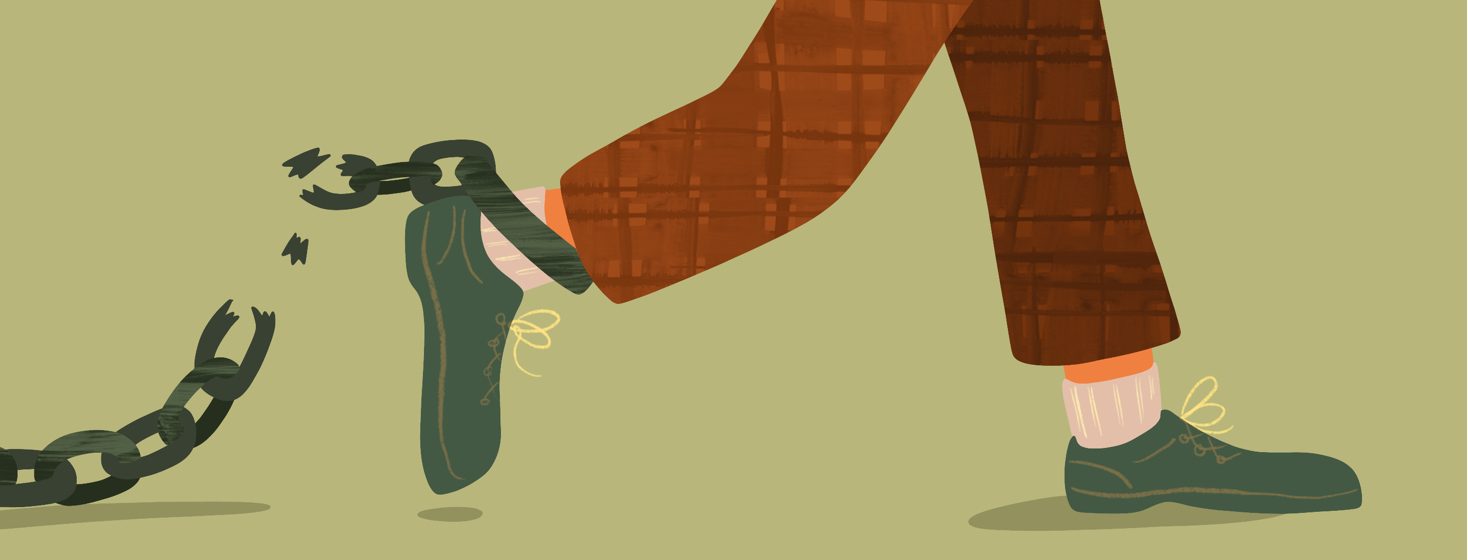Putting My Best Foot Forward – Walking to Manage Flares
I remember "pre-lupus" when my workouts were plentiful, and fatigue was at a minimum. There was a time when working out and exercising did not cause my body to be riddled in pain for weeks afterward. Life sure has changed since my lupus diagnosis. As a former athlete, I had to adjust my mindset towards health and wellness.
Adjusting my mindset
Creating a new mindset was one of the hardest things I had to adjust to. Although difficult, I had to start somewhere to adapt to my new lupus life. First, I started educating myself about lupus and the effects it could have on my body. Second, it was important for me to accept that I needed to adjust and adapt. I had goals and dreams for myself physically. Being an athlete, accepting a less strenuous daily routine was tough. Third, I had to identify a new mindset. Ditching the old beat-up mindset and starting over was the goal. Ultimately, I had to throw out the old and start anew. Finally, I had to flip the switch. Changing my thoughts and responses towards lupus was the key to creating a new mindset.
Creating a new measure of physicality in me
The adjustment in my mindset created a path for me to change how I did things physically. Being an athlete all of my life, it was a hard blow when I couldn't physically do what I used to. I had to find ways to keep moving and replace my usual exercise routine.
As an athlete, whenever I was injured, I would adjust my workouts to fit the injury. It started with meditation, then moved on to easier workouts until I was ready to go back to a full workout. I knew exactly how to adjust, adapt and create a new me. The decision was mine to make and figure out. As I thought about those former full athletic days, I knew I had to make a plan as if I was injured. After all, I was an athlete and was used to starting over to strengthen up.
Walking to prevent, reduce, and recover from flares
Once I realized I had to get into athlete recovery mode, the choice to work hard at it was my next step. I started walking when I began recovering from my hysterectomy. This was a difficult task because my hysterectomy was like no other. But that is a whole other story for another day. When I began healing, the only thing I could do was walk. I began to look at different walking programs that would help me heal, ward off flares, and reduce and help me recover from flares. For over nine weeks, I was unable to take my lupus medication, and the flares were present daily. Walking was one way I was able to train my body to heal.
I understood that those simple walks I took inside to heal would be crucial to my health later. Walking began to help me mentally by improving my mood. Physically, walking helped me to burn calories and maintain a healthy weight. I found the more I walked, the better I was feeling beyond the pain of my flares. It alleviated my joint pain, helped my digestion in my recovery, and helped me sleep better. It wasn't easy to walk while in pain from a hysterectomy and lupus flares, but it was worth it to heal and get to a better place.
Putting my best foot forward
I make it a point now to walk almost every day. I've created several walk challenges to help myself and solicit others to try. Becoming a regular walker has helped me establish a daily routine, reduce my pain, and assist me in healing mentally, physically, and spiritually.
Walking is the simplest way to get moving when you are struggling. Once you start putting your best foot forward, you will not want to stop. Walking inside and outside allows you to get moving, get some air and feel a little better. Would you try walking to help you feel better? Let me know in the comments.

Join the conversation